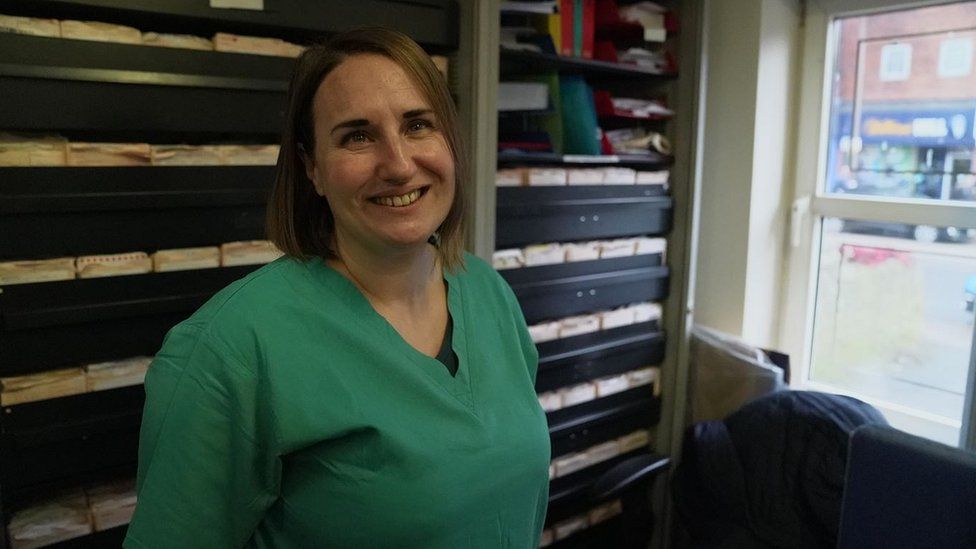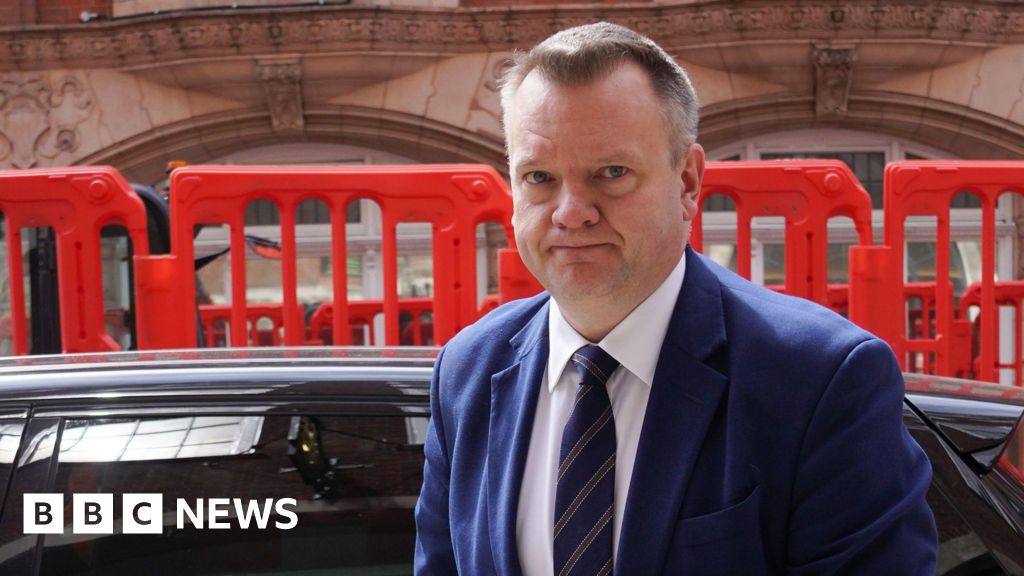ARTICLE AD BOX

Dr Karen Forshaw says the demand on GP surgeries is growing all the time
By Dominic Hughes and Nat Wright
BBC News
GPs say they are facing massive pressures, mirroring those across the health system.
Winter illness, an ageing and sicker population, and packed hospitals mean they need to provide more emergency care for their patients.
"We're here early, we finish late, we see as many patients as we can," says Dr Karen Forshaw, a GP at Don Valley Healthcare in Doncaster.
NHS leaders acknowledge the whole system is facing extraordinary times.
With dire warnings about backlogs and long waits in A&E, GPs surgeries are often the first port of call for those needing help.
This week surgeries across the country are likely to face intense levels of demand after the Christmas break.
At seven o'clock in the morning, on the first day back after the bank holiday, the Bentley surgery in Doncaster opens up.
Staff know it is going to be a busy one.
Within an hour, the phone lines are ringing off the hook, busy with patients seeking help and advice. By midday, more than 140 calls have been answered.
On reception, Sue Rushby, a care navigator, is helping check people in with pre-booked GP appointments, blood tests and physiotherapy. It is relentless.
"There's no two ways about it, you've just got to deal with people that are coming in, they need us. And I just do it," she said.
"It's non-stop but keep your cool, be nice, talk to them nice, that's my motto, that's how I work."
Image source, BBC Sport
Image caption,Sue Rushby is under constant pressure to deal with patients
The surgery offers telephone and face-to-face appointments.
AJ, who is 13, has come in with his mum, struggling with a sore throat and a rash on his arms and body.
After being examined by GP Dr Nabeel Alsindi, he is sent home and told to keep eye on his symptoms.
In the midst of an already busy day, suddenly there is a medical emergency in reception.
An elderly man feels unwell and there are concerns about his heart.
Staff are quick to respond with doctors and nurses rushing to make sure the patient gets the right treatment.
Shortly after, he is well enough to be sent home.
GP Dr Forshaw says demand is simply growing all the time - not just in GP surgeries, but across the health service.
"The pressure is huge all the way through the system at the moment and that's no different in general practice," she said.
"We have patients constantly ringing throughout the day. And as GPs our days are quite decision focused, so there's lots of decisions to be made and some of those are really important.
"And that can be quite draining actually so the pressure is huge definitely.
"It feels like there's more demand actually, but we don't have any more patients."
Call handlers are busy from start to finish at the surgery
Instead, she says the challenge is seeing more people with complex health issues and dealing with more emergency care.
NHS England has acknowledged there are multiple factors contributing to pressures on NHS services.
These include 18% more people coming into A&E in the last six weeks compared to the same period last year, and there are nearly 10,000 NHS staff absent at the moment due to Covid.
There are still a significant number of Covid patients in hospitals, too. In England the number has more than doubled 9,500 from a few weeks ago.
Delayed discharges of medically fit patients - who could leave if there was provision in the community - is also causing bed blocking in hospital.
Staff at the Bentley Surgery try to make sure everyone gets an appointment and doctors are taking on extra sessions so they can see more people.
Dr Forshaw says they have got to be optimistic about the future.
But she also says retaining staff, educating patients about when to access NHS services and thinking about what is both achievable and sustainable long term for the NHS have to be urgently looked at.
It also said it was providing £14.1bn in additional funding for health and social care over the next two years, as well as an extra £500m to try to speed up hospital discharges.

 2 years ago
46
2 years ago
46








 English (US) ·
English (US) ·